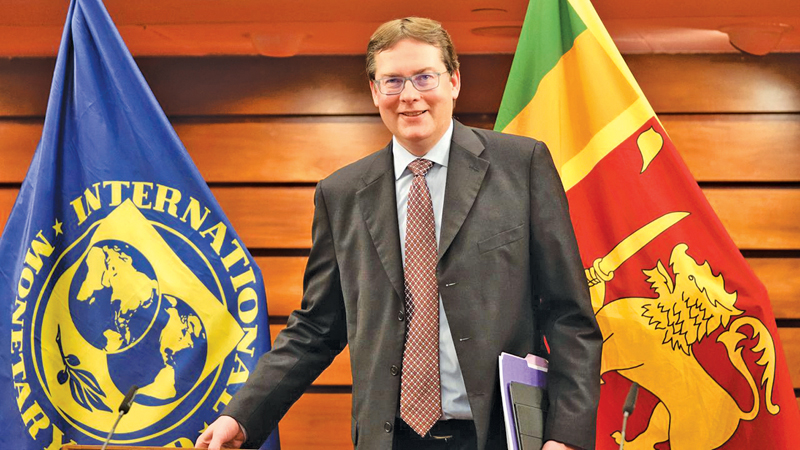The IMF Executive Board completed the third review under the 48-month Extended Fund Facility program with Sri Lanka, providing the country with immediate access to SDR 254 million (about US $334 million) to support Sri Lanka’s economic policies and reforms.
This is the fourth tranche Sri Lanka receives under the IMF-EFF and the total IMF financial support disbursed so far, accordingly, increases to SDR 1.02 billion (about US$1.34 billion).
The IMF Executive Board noted that the Sri Lanka’s performance under the program has been strong meeting all the quantitative targets for end-December 2024, except the indicative target on social spending.
The global lender observed that most structural benchmarks due by end- January 2025 were either met or implemented with delay. The recent successful completion of the bond exchange is a major milestone towards restoring debt sustainability.
It also observed that reform efforts are bearing fruit with the recovery gaining momentum. As the economy is still vulnerable, sustaining the reform agenda is critical to put the economy on a path towards lasting recovery and debt sustainability.
The EFF arrangement for Sri Lanka was approved by the Executive Board on March 20, 2023.
Macroeconomic stability
The IMF Executive-board approved an amount of SDR 2.286 billion (395 percent of quota or about US$3 billion. The program supports Sri Lanka’s efforts to restore and maintain macroeconomic stability and debt sustainability while protecting the poor and vulnerable, rebuild external buffers, and enhance growth-oriented structural reforms including by strengthening governance. Following the Executive Board discussion on Sri Lanka, Kenji Okamura, Deputy Managing Director, issued the following statement:
“Reforms in Sri Lanka are bearing fruit and the economic recovery has been remarkable. Inflation remains low, revenue collection is improving, and reserves continue to accumulate. Economic growth averaged 4.3 percent since growth resumed in the third quarter of 2023. By end-2024, Sri Lanka’s real GDP is estimated to have recovered 40 percent of its loss incurred between 2018 and 2023. The recovery is expected to continue in 2025. As the economy is still vulnerable, it is critical to sustain the reform momentum to ensure macroeconomic stability and debt sustainability, and promote long term inclusive growth. There is no room for policy errors.
“Program performance has been strong with all quantitative targets met, except for the indicative target on social spending. Most structural benchmarks due by end-January 2025 were either met or implemented with delay. “Sustained revenue mobilisation is crucial to restoring fiscal sustainability and ensuring that the government can continue to provide essential services. Boosting tax compliance and refraining from tax exemptions are key to maintaining support for economic reforms.
“To ease economic hardship and ensure the poor and vulnerable can participate in Sri Lanka’s recovery it is important to meet social spending targets and continue with reforms of the social safety net. Going forward, social support needs to be well-targeted towards the most disadvantaged so as to promote inclusive growth with limited fiscal space. Restoring cost-recovery electricity pricing without delay is needed to contain fiscal risks from state-owned enterprises. A smoother execution of capital spending within the fiscal envelope would foster medium-term growth.
“The progress to advance the debt restructuring to restore Sri Lanka’s debt sustainability is noteworthy. The recent successful completion of the bond exchange is a major milestone towards restoring debt sustainability. Timely finalisation of bilateral agreements with creditors in the Official Creditor Committee and with remaining creditors is a priority now. “Monetary policy should prioritise maintaining price stability, supported by sustained commitment to prohibit monetary financing and safeguard Central Bank independence. Continued exchange rate flexibility and gradually phasing out the balance of payments measures remain critical to rebuild external buffers and facilitate rebalancing.
“Resolving non-performing loans, strengthening governance and oversight of state-owned banks, and improving the insolvency and resolution frameworks are important priorities to revive credit growth and support the economic recovery. “Prolonged structural challenges need to be addressed to unlock Sri Lanka’s long-term potential, including steadfast implementation of the governance reforms.”




